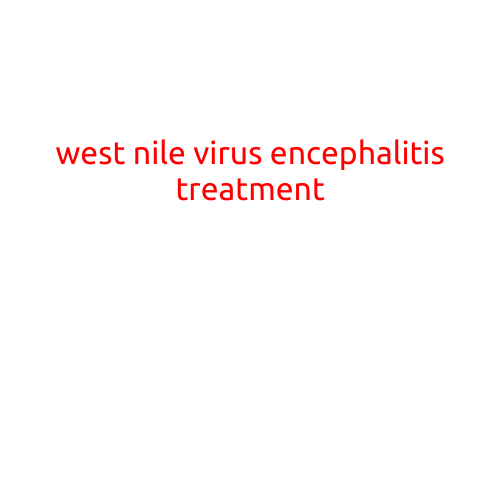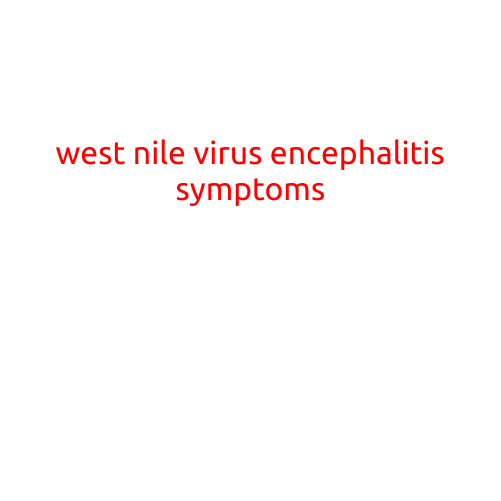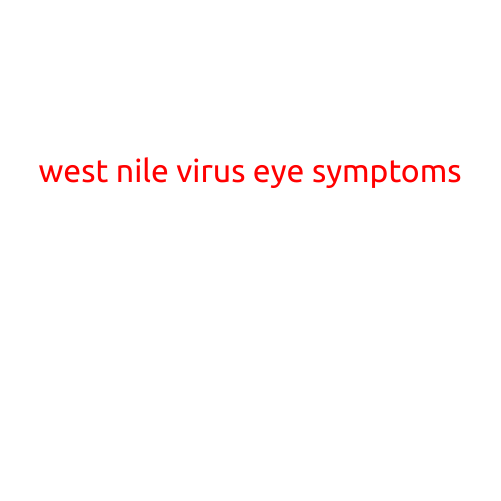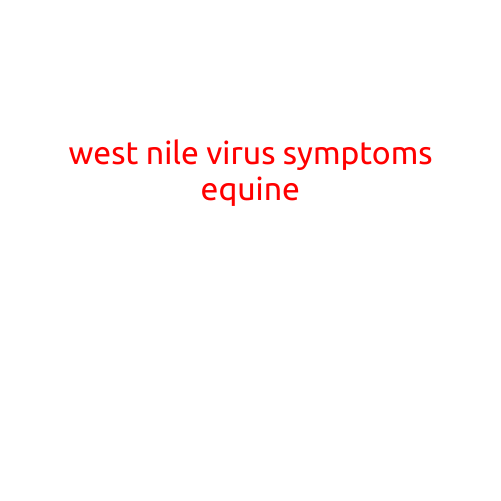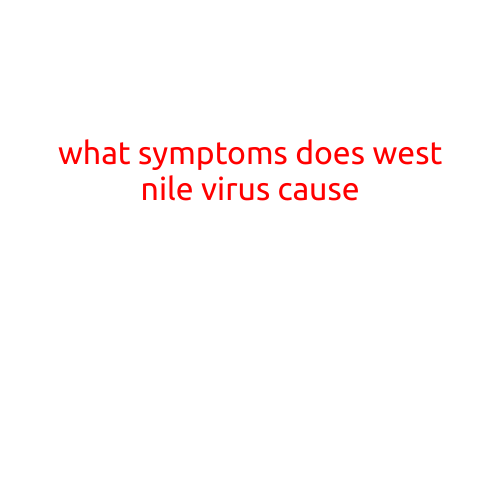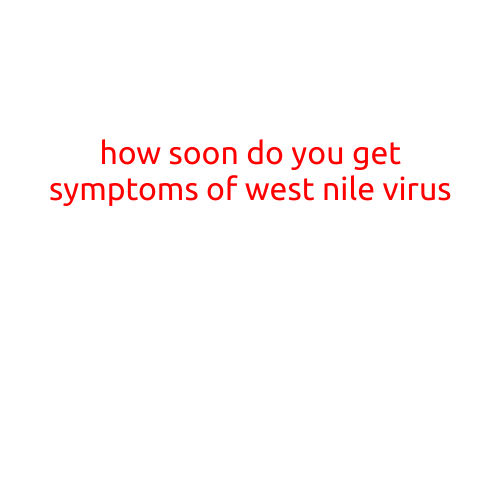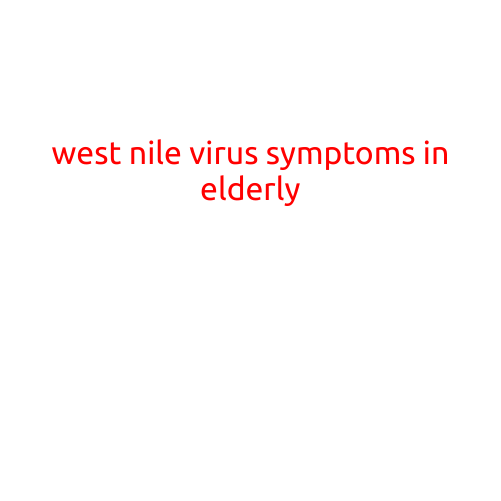
West Nile Virus Symptoms in the Elderly: Understanding the Risks and Prevention
As the summer months approach, concerns about West Nile virus (WNV) resurgence grow, particularly among the elderly population. WNV is a viral disease transmitted by the bite of an infected mosquito, and older adults are more susceptible to severe illness due to their compromised immune systems. This article aims to provide a comprehensive overview of WNV symptoms in the elderly, as well as offer essential prevention and management tips.
Elderly Population at Risk
The elderly population (65 years and older) is disproportionately affected by WNV. According to the Centers for Disease Control and Prevention (CDC), individuals older than 65 years account for over 90% of WNV-related hospitalizations and 80% of WNV-related deaths in the United States. The risk of severe WNV illness increases with age, and people older than 75 years are particularly vulnerable.
Common Symptoms in the Elderly
While WNV can exhibit a range of symptoms, the elderly population may experience more severe and debilitating manifestations. Common symptoms in the elderly include:
- Fever: A high fever (usually above 103°F) is a common initial symptom of WNV infection.
- Headache: Severe headache, potentially accompanied by a stiff neck.
- Encephalitis: Inflammation of the brain, which can lead to confusion, disorientation, or altered mental status.
- Cognitive impairment: Changes in mental status, such as memory loss, difficulty concentrating, or slurred speech.
- Seizures: Grand mal seizures or seizures triggered by strange movements or sounds.
- Muscle weakness: Severe muscle weakness, particularly in the legs, which can lead to falls or difficulty with daily activities.
- Numbness or tingling: Numbness or tingling sensations in the extremities, which can be a sign of neurological damage.
Uncommon but Serious Symptoms
In addition to the common symptoms, the elderly population may experience more severe and life-threatening manifestations, including:
- Meningitis: Inflammation of the lining around the brain and spinal cord, which can lead to severe headaches, stiff neck, and difficulty walking.
- Orchitis: Inflammation of one or both testicles, which can be painful and accompanied by fever, headache, and vomiting.
- Acute flaccid paralysis: Sudden and severe muscle weakness, which can lead to difficulty walking, swallowing, or breathing.
Diagnosis and Treatment
Diagnosing WNV in the elderly can be challenging, as symptoms may be similar to those of other infections or conditions. Healthcare providers may carry out a physical examination, medical history, and laboratory tests (such as blood tests or spinal fluid analysis) to diagnose WNV. Treatment is typically supportive, focusing on managing symptoms and preventing complications. Antiviral medications may be prescribed in severe cases or if there is a risk of co-infection with another illness.
Prevention is Key
Preventing WNV infection is crucial, especially for the elderly population. Here are some effective prevention strategies:
- Use insect repellent: Apply insect repellents containing DEET, picaridin, or oil of lemon eucalyptus to exposed skin and clothing.
- Wear protective clothing: Wear long-sleeved shirts, long pants, and socks when outdoors, especially during peak mosquito hours (dawn and dusk).
- Eliminate breeding sites: Remove standing water from your environment, as it can become a breeding site for mosquitoes.
- Check for mosquitoes: Conduct regular check-ups for mosquitoes indoors and outdoors, particularly in areas with stagnant water or dense vegetation.
- Consult with your healthcare provider: Discuss WNV vaccination options with your healthcare provider, especially if you are 50 years or older and live in an area with WNV transmission.
Conclusion
West Nile virus is a serious public health concern, particularly among the elderly population. Understanding the symptoms, diagnosis, treatment, and prevention strategies is crucial for older adults to take proactive measures to minimize their risk. By practicing effective prevention and management techniques, individuals can reduce their risk of WNV infection and ensure a safer and healthier summer.
